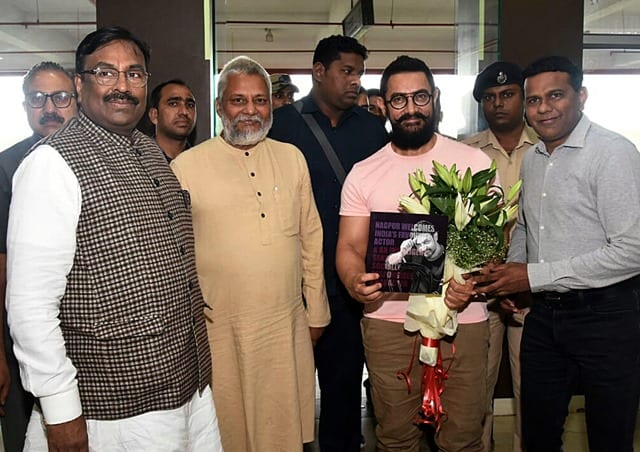
Month: August 2019

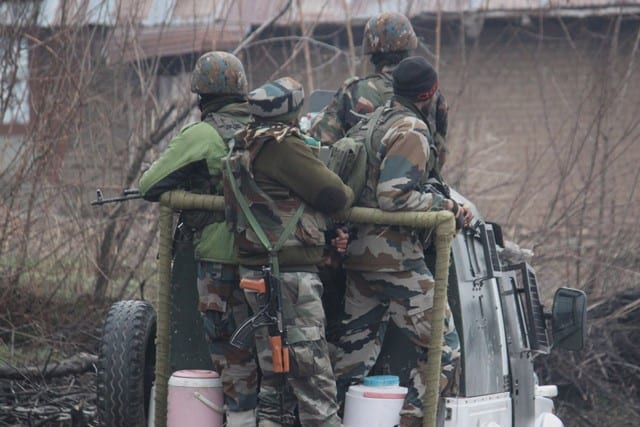
J&K Parties Unite As Fear Grips Valley
“I appeal to India and Pakistan not to take any step that may escalate tension between the two countries because it will harm both the nations,” parties said in a declaration.
The leaders unanimously resolved to “protect and defend identity, autonomy and special status to Jammu and Kashmir against all attacks and onslaughts whatsoever”.
“Modification, abrogation of Article 35A, Article 370, constitutional delimitation and trifurcation of the state would be an aggression against the people of Jammu, Kashmir and Ladakh,” National Conference chief Farooq Abdullah, reading the declaration, said.
The leaders appealed to President Ram Nath Kovind and Prime Minister Narendra Modi to safeguard the “legitimate interest” of the people of the state.
“The parties participating in the meeting resolved to seek audience with the President and PM and also other leaders of the political parties to apprise them of the current situation and make an appeal to them to safeguard the legitimate interest of the people of the state with regard to constitutional guarantees given by the Constitution of our country,” former Chief Minister Abdullah said.
The NC leader also warned the government of the “unwholesome consequences” that are “bound to follow any violation of the guarantees” given by the Constitution.
Leaders from the NC, Congress, PDP, Awami National Conference, Jammu and Kashmir People’s conference, Jammu and Kashmir People’s Movement and Communist Party of India (Marxist) attended the meeting and resolved to “remain together and stand united in their struggle for the identity, autonomy and special status of the state”.
Kashmir has been on the edge in the wake of a massive security build-up and state government’s advisory to Amarnath pilgrims and tourists urging them to curtail their visit.
The government said the step to issue an advisory to tourists was taken after it received intelligence about a possible terrorist attack on Amarnath pilgrimage.
Governor Satyapal Malik has sought to dispel speculation and asserted that the government was not planning to take any “drastic” step pertaining to the state.
(ANI)
]]>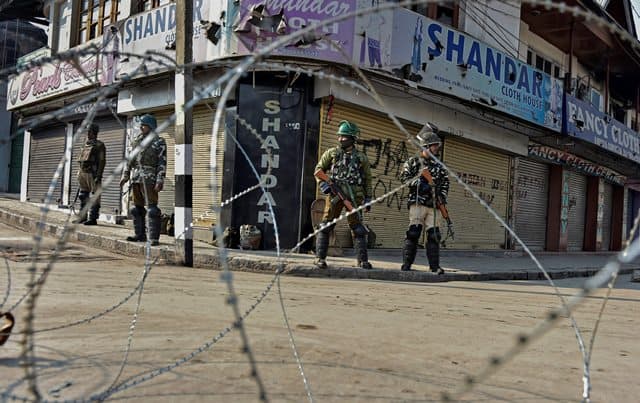
Shah Meets Home Secy, NSA On Kashmir
The meeting came in the backdrop of recent developments in the state of Jammu and Kashmir.
The Jammu and Kashmir government on Friday issued an advisory to Amarnath Yatris and tourists asking them to curtail their stay in the Valley, citing security concerns after the Indian Army said that Pakistani terrorists are planning to disrupt the pilgrimage.
During a search operation on Amarnath Yatra route, one M24 rifle and an Anti-Personnel Land mine with markings of POF( Pakistan Ordnance Factory) were recovered along the Northern route.
The M24 rifle is a sniper weapon in service being used by the US Army. There is a possibility that this weapon might have been brought in from Afghanistan where it might have been looted by the Taliban.
Further, Indian Army on Saturday said to have foiled an infiltration attempt by Pakistani BAT in Jammu and Kashmir’s Keran Sector and eliminating five to seven Pakistani Army regulars and terrorists.
Last week, the Union Home Ministry had ordered the deployment of an additional 100 companies of central paramilitary forces in the state. One company comprises around 100 personnel. (ANI)
]]>CBI Grills Unnao Rape Accused
The investigation agency had constituted an additional special team of 20 investigating officers to assist the probe into Unnao rape survivor’s road accident on Friday.
On July 28, a truck rammed the vehicle in which the victim was travelling. While her two aunts died immediately, she and her counsel suffered serious injuries and are undergoing treatment at the King’s George Medical University in Lucknow.
The Supreme Court had, on August 1, asked the CBI to investigate within seven days the mysterious case of the accident and also ordered the transfer of all cases related to Unnao rape incident from Uttar Pradesh to Delhi.
The Uttar Pradesh Police filed a case of murder against expelled BJP MLA Kuldeep Singh Sengar and nine others in connection with the accident. Probe in the case was transferred to the CBI on July 30.
Sengar, a legislator from Bangermau in Unnao district, had allegedly raped the girl at his residence in Unnao on June 4, 2017, where she had gone seeking a job. He is currently lodged in Sitapur district jail. (ANI)
]]>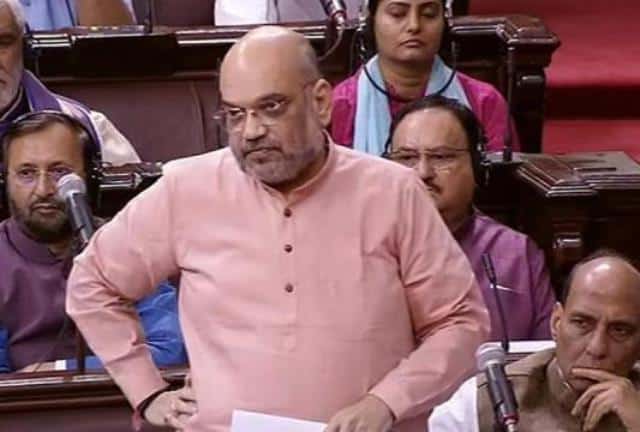
Is Modi Govt Dishing Out Legislative Bills Like Pizzas?
When India replicated the Westminster model and introduced the system of Parliamentary standing committees in the early nineties, the basic purpose was to ensure an in-depth scrutiny of proposed laws and budgetary proposals as it was felt that these were often not discussed at length in Parliament due to paucity of time.
A conscious decision was taken to keep the press and public out of these committee meetings so that members were not obliged to take a partisan stand which is the case when legislation is debated on the floor of the House. A free and frank discussion, it was felt, allowed MPs to offer constructive suggestions which would help strengthen and improve a particular legislation.
This system has worked so far. But the incumbent Modi government has been particularly reluctant to refer legislative Bills for scrutiny to Parliamentary committees. The number of Bills which were sent to committees for detailed deliberations dropped to 26% during Modi’s first term. In contrast, the figures for the earlier two Lok Sabhas was a healthy 60 and 71%. The Modi government is yet to open its account in the ongoing Parliament session.
A defanged and divided opposition has looked on helplessly as the Modi government ensured the passage of 20-odd Bills in the first session of the new Lok Sabha without sending even a single one to a Parliamentary committee. These include the amendments to the Right to Information (Amendment) Bill, the legislation criminalising triple talaq and the Unlawful Activities (Prevention) Amendment Bill to name a few.
The opposition has registered its protest but these have been ignored by an emboldened Modi government which has used its numerical strength in the Lok Sabha to push ahead with its legislative business.
Realizing that the opposition does not have the numbers or the will to challenge it, the Modi government unilaterally extended the Parliament session dusted up all its old Bills and rushed ahead with their passage. Brushing aside the opposition’s objections, Bharatiya Janata Party leaders maintained that the Bills which had been tabled for passage were not new but those which had been pending since the last Lok Sabha.
Unlike his predecessors, Prime Minister Narendra Modi is particularly averse to referring important Bills to Parliamentary committees. The showman that he is, the Prime Minister wants to set a record for the most productive Parliament session. Second, he wants to take advantage of the disarray in the opposition ranks to literally bulldoze legislation through Parliament. More importantly, Modi does not want any hurdles which can delay the passage of Bills.
Past experience shows that scrutiny by a Parliamentary committee is a time-consuming process. This can impact decision-making as opposition leaders, who head these committees, use it as a political tool by prolonging the deliberations. This is exactly what happened when the Manmohan Singh government was in power. Two of its flagship legislations- the Right to Food Bill and the Land Acquisition Bill – were deliberately delayed by the Parliamentary committees then headed by BJP leaders. Since the reports of the committees were submitted virtually towards the end of the government’s tenure, the Centre did not have sufficient time to implement the legislation and take electoral advantage of its “pro-poor” programmes.
Clearly, Modi wants to avoid a similar situation. Not only is he intent on making a big splash by ensuring the smooth functioning of Parliament, the Prime Minister does not want any roadblocks in the implementation of his government’s agenda which can damage his personal image as a decisive leader. More importantly, Modi wants to use the session to remind the opposition about its diminished strength and the government’s massive majority in the Lok Sabha. Unlike the past, no effort is now made to reach out across the political aisle and establish a working relationship with the opposition. The divide is all too clear as the BJP believes dialogue with its opponents is unnecessary.
On its part, an enfeebled has objected to the government’s attitude. It has accused Modi and Union home minister Amit Shah of showing scant regard for Parliament and treating it like the Gujarat assembly where the Modi-Shah duo had acquired the reputation of pushing through the government’s legislative business without adequate debate. But to little avail.
Besides the fact that the opposition is in a hopeless minority in the Lok Sabha, it is also a divided house, having also lost the edge it enjoyed in the Rajya Sabha in the Modi government’s first term when it had the numerical strength to challenge the treasury. The ruling alliance has since bridged the gap and is now close to a majority in the Upper House following a series of defections from the opposition ranks. Former Prime Minister Chandrashekhar’s son Neeraj Shekhar, Congress leader Sanjay Sinh and four members of the Telugu Desam Party have switched loyalties to the BJP, swelling its tally.
At the same time, the BJP has succeeded in driving a wedge in the opposition thanks to some deft floor management. This was evident during the voting on the triple talaq Bill when the BJP managed to get the support of the Biju Janata Dal while made sure the Bahujan Samaj Party, the People’s Democratic Party, YSR Congress, the Nationalist Congress Party and the Janata Dal (U) were not present during the vote.
From all accounts, the pattern set in the first session of the BJP government’s second term will become the norm. It is clear that the future of Parliamentary democracy is in peril as Modi has made it known that he does not like being questioned or opposed.
]]>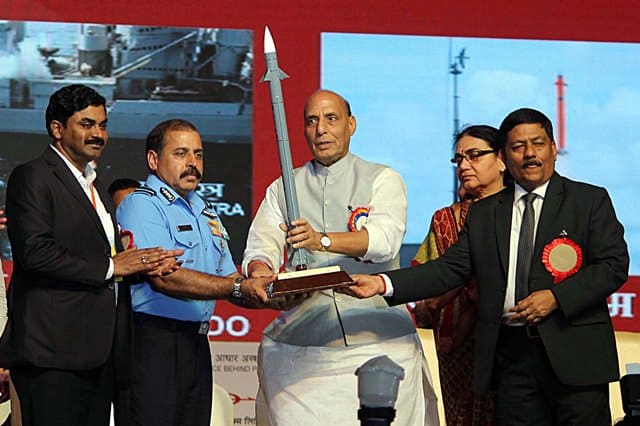
Rajnath Singh Stresses On Force Modernisation
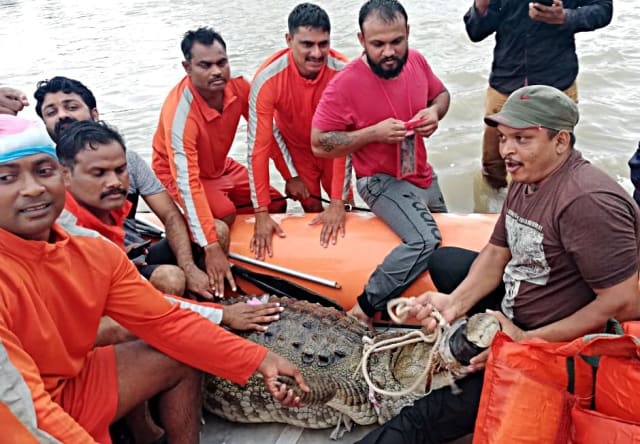
NDRF Rescues Crocodile From Flooded Vadodara
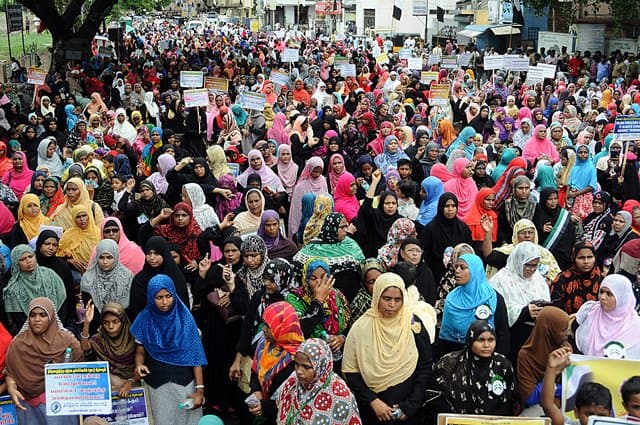
Thawheedh Jamaath Holds Protest Against Terrorism
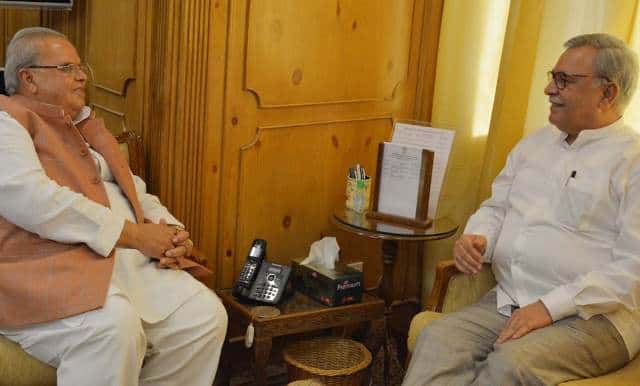
Guv Tries To Calm Nerves In Kashmir
“Omar Abdullah and the delegation members were worried about the panic situation that had developed in the Kashmir valley after yesterday’s Press Conference and the Government Advisory asking Amarnath Yatris and tourists to return as soon as possible. Governor Malik informed the delegation that the security situation has developed in a manner which required immediate action. There were credible inputs which were available to the security agencies regarding terrorist attacks on the Amarnath Yatra,” a press release by the Governor’s office read.
Earlier today, Abdullah led delegation arrived at the Raj Bhavan in Srinagar to hold talks with the Governor to discuss recent developments in the valley.
The release added that increase in shelling from across the LoC by Pakistan had required an immediate response from the Army due to which the government asked the Yatris and tourists to return from the valley.
“There has been intensified shelling on the LoC by Pakistan which was responded to effectively by the Army. This was mentioned in the Press Conference yesterday afternoon by the Corps Commander of the Army and the DGP. Details of the weapons and ammunition recovered were given. The seriousness of the threat required immediate action. It is in this context that the government had issued an advisory asking Yatris and tourists to return as soon as possible,” the release read.
It went on to add, “These are a vulnerable group of people who do not know the area and are extremely vulnerable to a terrorist or a fidayeen attack. It is the responsibility of the state to provide security to all its citizens. Therefore, as a precautionary measure, Yatris and tourists have been asked to return. This is to ensure that no terrorist attack takes place on them.”
Malik assured Abdullah that he had no knowledge of any planned changes to the constitutional provisions (Article 35A and 370).
“Malik also said that the state has no knowledge of any changes to constitutional provisions. Therefore, no panic should be created by unnecessarily linking this security matter with all kinds of other issues. A pure security measure is being mixed up with issues with which it has no connection,” the release said.
The Governor also requested the political leaders to ask their supporters to maintain calm and not believe the rumors.
(ANI)
]]>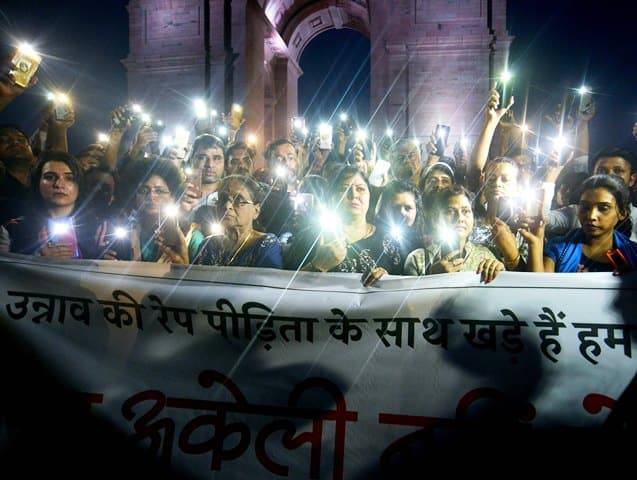
Unnao Rape Survivor Develops Pneumonia
“The female patient is still on the ventilator and she has caught pneumonia due to which she is having a fever. She is being administered medicines to keep her blood pressure normal,” a bulletin by the hospital said.
The condition of both the patients is critical but stable, it said adding her lawyer is doing better.
“The male patient is able to breathe normally. However, the two are still in an unconscious state and their treatment is being carried out for free by a team of experts,” it said.
On July 28, a truck rammed into the vehicle in which the Unnao rape survivor, her counsel and two aunts were travelling to Raebareli. While she and her lawyer sustained grievous injuries, her aunts were killed on the spot.
The Uttar Pradesh Police had filed a case of murder against Kuldeep Singh Sengar, who was expelled from BJP on Thursday, and nine others in connection with the accident.
A legislator from Bangermau in Unnao district, Sengar had allegedly raped the girl at his residence in Unnao on June 4, 2017, where she had gone to seek a job. He is currently lodged in Sitapur district jail.
Probe in the case was transferred to the Central Bureau of Investigation (CBI) on Tuesday. (ANI)
]]>